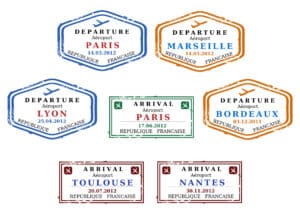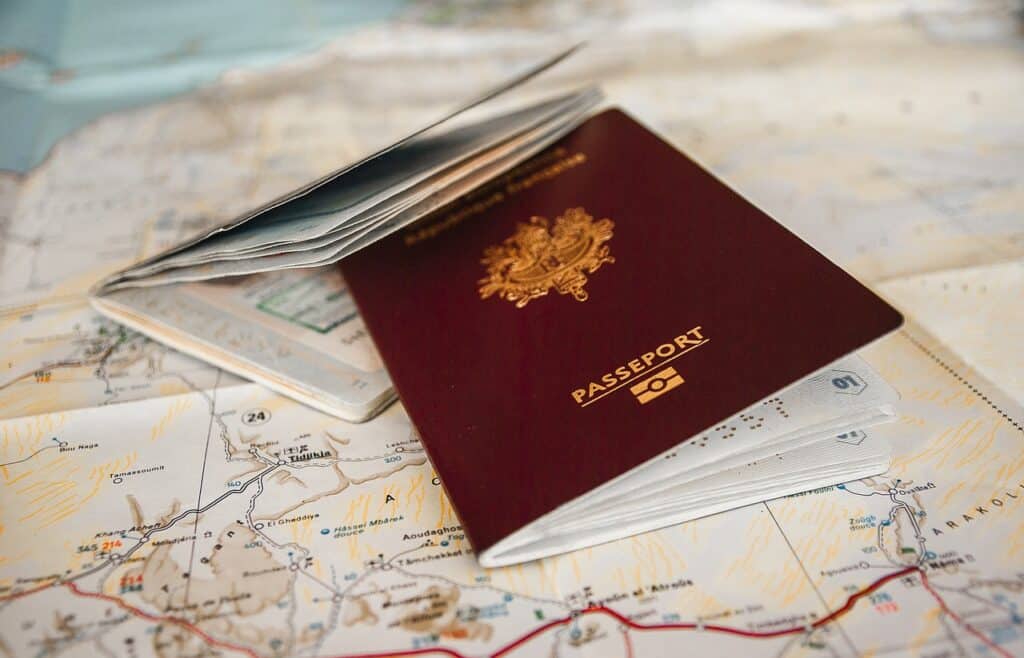France is a top destination for travelers, students, workers, and families alike. Whether you are planning a short getaway, a long term stay, or a move to this beautiful country, it is crucial to understand which visa you need to enter and reside in France legally. With a variety of visa types based on the purpose of your visit, the process can be overwhelming. In this guide, we will break down the different types of visas and explain how to choose the right one for your stay in France.
Do I Need a Visa for France?
Before diving into the types of visas, the first question you need to ask is: Do I even need a visa? The answer depends largely on your nationality and the length of your stay.
Schengen Area Nationals: Citizens of countries within the Schengen Area do not need a visa to enter France. EU nationals wishing to live in France must register at the town hall in the municipality where they are staying within 3 months of arriving in France.
Visa Exempt Countries: Some non EU countries (e.g., the U.S., Canada, Australia, Japan) are exempt from visa requirements for short stays (up to 90 days within a 180 day period). However, starting in 2024, U.S. travelers will need to apply for an ETIAS (European Travel Information and Authorization System) before visiting.
Visa Required Countries: If you are from a country not on the visa exempt list, you will need to apply for a visa to visit France. Depending on the nature of your trip there are different kind of visas.
Note: All non Europeans wishing to stay in France for more than 90 days MUST apply for a visa.
1. Short Stay Schengen Visa (Type C)
The Schengen Area is a group of 27 European countries, including France, that have abolished border controls between each other. If you are planning to visit France for tourism, business, or to visit family or friends for a short period (up to 90 days), and you are coming from a visa required country, you will need a Short Stay Schengen Visa.
- Eligibility: Tourism, business, or visiting family and friends.
- Validity: Stay of up to 90 days within a 180-day period.
- Documents Required: Passport, visa application form, travel insurance, proof of accommodation, return flight tickets, and proof of sufficient financial means.
Note: If you are traveling to multiple Schengen countries, you should apply for the visa at the consulate of the country where you will spend the most time, or where you will enter first.
2. Long Stay Visa (Type D)
If you plan to stay in France for more than 90 days, you will need a Long Stay Visa. This visa is required for various purposes, including studying, working, joining family members, or other long term stays. It allows you to reside in France for a period of up to a year, and you can renew it depending on the reason for your stay. This visa is called VLS-TS (Visa de Long Séjour valant Titre de Séjour) in French.
- Eligibility: Studying, working, family reunification, or any other long-term stay.
- Validity: Up to 1 year (renewable, depending on the purpose).
- Documents Required: Depending on the type of long stay, documents can include an acceptance letter from a French university (for students), a work contract (for employees), or proof of family relationship (for family reunification).
Common Subcategories of Long Stay Visas:
- Student Visa: For those planning to study in France at a recognised institution. You will need proof of enrollment, financial means, and often health insurance.
- Work Visa: For individuals who have secured employment in France. The employer usually handles part of the process by applying for a work permit on your behalf.
- Family Visa: If you are joining a spouse, parent, or child who is already residing in France, you may apply for a family visa. Documentation of your relationship (e.g., marriage certificate, birth certificate) will be required.
- Talent Passport (for Professionals and Entrepreneurs): This is a special visa designed for skilled workers, entrepreneurs, and talent in fields such as technology, science, sports and the arts. It is a more streamlined option for those with significant professional expertise or who plan to invest in a business in France.
3. Student Visa
France is one of the world’s most popular study destinations, and the Student Visa is required for anyone planning to study in the country for more than three months. The visa allows you to live, study, and work part-time while enrolled in a French institution.
- Eligibility: Enrollment in a French university or educational institution.
- Validity: Usually valid for the duration of your course, typically up to one year.
- Documents Required: Proof of enrollment, financial means (proof you can support yourself during your studies), accommodation details, and sometimes language proficiency depending on the program.
The Étudiant-Concours visa is another specific student visa option for those who plan to attend an entrance exam for French universities or grandes écoles.
4. Work Visa
For those moving to France for employment, a Work Visa is necessary. The French work visa process is typically employer driven, meaning your employer in France must apply for a work permit for you. There are different kind of visas, based on your skills, job type, and qualifications.
- Eligibility: A valid job offer from a French employer.
- Validity: Generally, the length of the employment contract.
- Documents Required: Job offer, work contract, professional qualifications, proof of salary, and sometimes proof of experience in your field.
Some of the most common work visas include:
- Salaried Worker Visa (Salarié): For employees with a long-term contract.
- Temporary Worker Visa (Travailleur Temporaire): For workers with a short-term contract.
- ICT (Intra-Company Transfer) Visa: For employees transferring within a multinational company.

5. The "Talent Passport" and "Profession Libérale" Visas
Both the Talent Passport and the Profession Libérale visas are designed for individuals who want to live and work in France independently, but they serve different purposes and target different types of professionals.
Talent Passport Visa
The Talent Passport visa is aimed at highly skilled individuals who are coming to France to work in specialized fields such as science, technology, business, arts, or academia. It is intended for those who have specific talents that can contribute to France’s economy and cultural landscape. This visa is available in multiple categories, such as:
- Highly skilled workers with a job offer in France
- Researchers with a French host institution
- Entrepreneurs or investors starting a business in France
- Artists or performers with recognized talent in their field
Profession Libérale Visa
In contrast, the Profession Libérale visa is for self-employed professionals who plan to work independently in France. It is ideal for freelancers, consultants, or independent contractors working in a wide range of professions. Unlike the Talent Passport, which is more focused on specific talent categories, the Profession Libérale visa is for anyone who can demonstrate they have the necessary qualifications and a viable business plan to operate as a self employed professional.
This visa requires proof of professional qualifications, financial means to support yourself, and a demonstrated need for your services in the French market. It is typically issued for one year and can be renewed based on your continued business activity in France.
6. Visitor Visa (for Non-Working Visitors)
If you are planning to stay in France for a long period without working (for example, if you are retired or living off personal savings), you may apply for a Visitor Visa.
- Eligibility: Proof of financial means to support yourself, health insurance, and proof of accommodation.
- Validity: Up to 1 year, with the possibility of renewal.
- Documents Required: Proof of savings, health insurance coverage, and a proof of accommodation.
Note: This visa does not allow you to work or engage in any professional activity while residing in France.

7. Family Reunification Visa
If you are a foreign national with family members who are already residing legally in France, you can apply for a Family Reunification Visa. This visa allows you to join your spouse, child, or other qualifying family members in France.
- Eligibility: Proof of family relationship with a French citizen or legal resident.
- Validity: Based on the family member’s status in France.
- Documents Required: Marriage certificate, birth certificates, proof of family member’s legal residence in France, financial support proof.
How Move Me To Paris Can Help
The process of applying for a French visa can be complex and time consuming, but Move Me To Paris is here to help. Our expert team provides personalised guidance on the visa application process, ensuring you have all the right documents and meet the requirements for your specific visa type. Read more about this in our blog “The Ultimate Guide to Getting a French Visa”. We assist with everything from document preparation and form submission to post arrival services like applying for a residence permit.
With Move Me To Paris, you can take the stress out of your move to France and focus on enjoying your new adventure!

